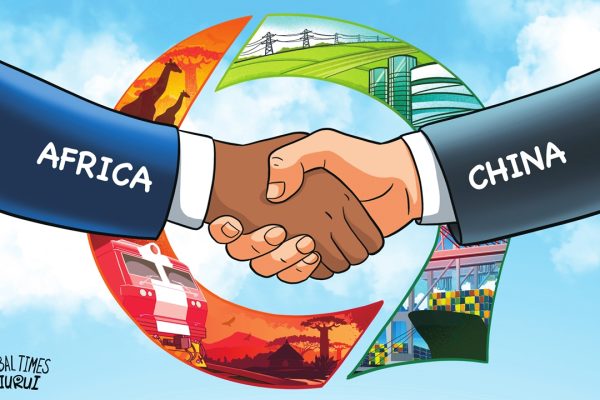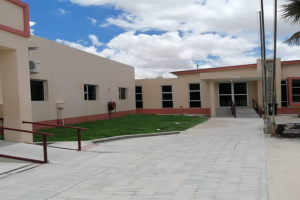
By: Andy Browne
US President Donald Trump’s boycott of this past weekend’s G20 meeting in Johannesburg has been widely cast as a win for China, and for good reason: The US appears to be turning its back on Africa just as Beijing surges its infrastructure and investment commitments to the continent after a long lull. A new wave of projects this year features clean technology — solar, wind, batteries — as well as billions for oil and gas.
Yet, China’s track record in Africa is decidedly mixed. Beijing’s mercantilist trade practices are a growing threat, as artificially cheap Chinese products — blocked from the US by Trump’s tariffs — inundate markets across the continent.
At the same time, heavy debts to China are squeezing African nations like Congo Brazzaville, Kenya, and Zambia, the legacy of a financial crash triggered by the COVID pandemic that left these countries struggling to pay for all the roads, railway lines, ports and other infrastructure that China installed. Perversely as a result of that crisis, China’s approach to Africa and other emerging economies is becoming more hard-nosed: Beijing is supplying fewer public goods, like highways, and backing projects with strong cash flows, like fossil fuel facilities.
African nations are thus trapped: They may complain about some of these problems, but only China is offering investments at scale. Powers that can match Beijing’s funding capacity — think the US with Wall Street, or the EU — cannot come close to the speed at which it delivers projects or, for that matter, its technical expertise, and vice versa.
The US and other Western powers talk a big game about competing with China’s long-running Belt and Road Initiative, but their efforts have come up far short. Instead, the US has largely dismantled its foreign aid program, while the EU, UK, and other Western economies scale back theirs.
As a result, Beijing is moving closer to its goal of forging an alternative to the US-led global order — not because of any great enthusiasm among indebted countries of the Global South, but by default. Writing in Foreign Affairs recently, Jeffrey Prescott and Julian Gewirtz — two Biden-era foreign-policy officials — argue that China is going all out to exploit Trump’s “willing abdication” of Washington’s global role. “If this gambit succeeds, it will transform the international order from the inside out, placing China at centre stage,” they write.
When it comes to the US, Trump’s tariffs are hitting certain countries in Africa especially hard. South Africa’s rate, at 30%, is the highest of any African country, and thousands of jobs in the agricultural and automotive sectors are now at risk in the continent’s largest economy.
The continent’s biggest challenge will be to persuade China to transfer know-how, along with technology. The vocational training centres that Beijing has opened in 15 African countries come with a cute name — Lu Ban, the Chinese patron deity of carpenters — but Africa needs more than a few workshops. True partnership would require sprawling educational campuses, like those in China, minting engineers and technicians by the thousands every year, along with stronger Chinese commitments to local employment, content, and R&D so that Africa can climb the value chain.
Of course, the US is offering nothing of the kind, anyway. Africa and other emerging economies seeking to industrialise are out of options.
A recent RAND study argued that African leaders generally welcome Chinese engagement because Beijing doesn’t condition its support on their embrace of democracy or human rights. “China provides an alternative to a Western-led rules-based order,” the report says, noting that several African countries have adopted an explicit pro-China stance, while others leverage their relationships with China to demand better treatment and concessions from the West — with varying degrees of success.









